Marcel van Marrewijk's Blog, page 43
July 2, 2019
Remote work – the future of work or a fad?

Remote work is an idea that has likely occurred in the mind of every office worker during lengthy commutes, early day starts or traffic disruptions. During such days, for many the freedom of working from the comfort of your couch, or substituting rainy Northern European winter for a coworking spot by the tropical seaside looks very appealing.
Yet, however, most of the country still raises well before the time they would otherwise choose to, to make it to the office at 9 am, struggling through the rush hours and traffic jams. Does that mean that remote working is still unaccessible for most, or just a fad, made up by millennials in their constant search for new meanings? Or is it an actual new way of working, which is not employed by more companies because of inertia and unwillingness to change the old ways?
What is remote work exactly?
There is still a lot of misconception regarding what remote work exactly is. While some may imagine the idyllic image of a sunbathing worker answering his emails in the sun bed in Bali, others might have a less picturesque image of someone stuck in the four walls of his apartment with no one to talk to or ask for guidance. While both these options are indeed possible scenarios for a remote work, they are just two of hundreds.
One of the key advantages of the remote work is that people can choose to work in such a way which benefits the most to their lifestyles. This can be done in a great number of ways – working from home for some of the days and coming to the office for face to face meetings for the others, working from home, co-working space, nearby cafe, hotel lobbies, other people’s homes (S2M for locals), or hitting the road to work from the world’s most picturesque spots.
Trends in remote working.
While the question whether remote working works for them is still unanswered for many, the stats shows a rather clear picture of how the future of work is changing in general. Remote work is on the rise – between 2005 and 2015, remote work increased 115%, going from 1.8 million telecommuters to a whopping 3.9 million in the US alone. For many upcoming companies flex work is not just a nice extra perk certain selected employees can enjoy but a way of living. For example, one of the tech latest unicorns, Gitlab, currently valued at more than €1 billion dollars, has employees in 45 countries and zero offices – all of their operations are completely distributed. The existence and success of such companies proves that remote working is a viable alternative to the traditional in-office structure.
On the other hand, recently a number of companies, such as IBM, Yahoo and Best Buy, decided to pull back to the office their remote workforce. It can be argued that this decision to the overall difficulties with the organizations’ management. However, currently many companies consider an important value collaboration, and collaborative effort still often relies on face to face communication. Whether that is an issue which can be resolved with a development of communication technologies, we are yet to find out.
Remote work – how and why.
While entrepreneurship and freelance are two obvious flexwork-friendly paths, with the technological advancement working for a company remotely becomes more and more common. That doesn’t mean just tech companies – you might be surprised to see the growing number of education, marketing, sales and financial services positions available remote.
A reason while remote work is appealing for many is that it offers a more flexible lifestyle, which allows to combine non-work related activities and family commitments. Also, it reduces stress levels in employees – commute-related stress level alone is reduced by 55%. Moreover, flexwork allows to further foster trust in the employer-employee relationship, as an employee gets an almost full control of structuring and performing its work and an employer receives extra time resources, freed from constant supervision.
Conclusion
In conclusion, remote work is surely establishing itself more and more firmly in the job market as a whole. From being a prerogative of just tech startups and freelancers, it’s spreading to more industries. It is still a long way for remote work to become a default option and in some areas not feasible yet, but it is certainly a solution which contributes to the development of work/life balance, reduces time wasted on lengthy commutes and unproductive office communication and increases intrinsic motivation of employees.
However, one of the best and easiest ways to connect and collaborate still remains an interpersonal communication, which is facilitated by face to face contact. Therefore, even the most proactive advocates of distributed teams and remote work are finding it productive to occasionally bring its workforce together to facilitate innovation, connectedness and feeling of belonging.
One of the ways for a company to connect with remote work is by opening up its free facilities to co-workers from outside of their company. S2M has been allowing this kind of collaboration for many years with the help of our software. It allows to connect co-workers and the company they work at, showing their skills and experiences and allowing both parties to understand and share the ways coworking and remote working can be used in modern day organizations.
The post Remote work – the future of work or a fad? appeared first on Seats2meet.
Het hoe en wat van Let’s Cowork Week (15-19 juli)

Op 15 juli openen we de Let’s Cowork Week bij Seats2meet Utrecht CS. Een week waarin je niet alleen een werkplek boekt om lekker te werken, maar ook samen met andere coworkers een actieve uitwisseling hebt.
Dagelijks programma
We starten elke dag met een offline check-in, waarbij we je dezelfde vragen stellen als bij de online check-in, waar werk je aan vandaag en welke vraag heb je waar het netwerk je bij kan helpen. Daarna ga je lekker aan het werk aan je eigen projecten of je drinkt een kop koffie met iemand die daar ook zin in heeft 
June 30, 2019
Member meeting

In deze nieuwe serie ontmoet je ‘echt’ de mensen achter de balie. Dus confronteer ze vooral met deze nieuwe informatie en wellicht krijg je het volgende lunchmuntje wel gratis! We trappen in dit interview af met de nieuwste collega: Jimmie van der Bosch!
Hoe lang werk je hier al?
Ik werk hier nu ongeveer drie maanden.
Wat vind je leuk aan S2M?
Het is een inspirerende plek waar je in contact komt met veel verschillende mensen. Er is ruimte voor eigen initiatieven, en daarom een mooie plek om te ontdekken welke kant ik hierna op wil.
Wat is je leukste serendipiteit-moment geweest bij S2M?
Laatst sprak ik iemand die bezig was met een eigen bedrijf over kunst. In de laatste maanden is hij dit voor zichzelf aan het opzetten, wat ik een mooi project vind.
Welk nummer zou jij achter de receptie opzetten?
Pokémon theme song.
Welke wijsheid zou jij andere mensen meegeven?
Geluk kun je pas vermenigvuldigen door het te delen.
Welke zaal zou jij boeken als ondernemer?
‘Some like it hot.’ Optioneel is hier klassieke en rustgevende strandmuziek op de achtergrond. Dit kan heel ontspannend werken, vooral als je even een dutje wil doen in de bijbehorende strandstoel!
The post Member meeting appeared first on Seats2meet.
June 27, 2019
Dutch: Not Loving Risks Much?
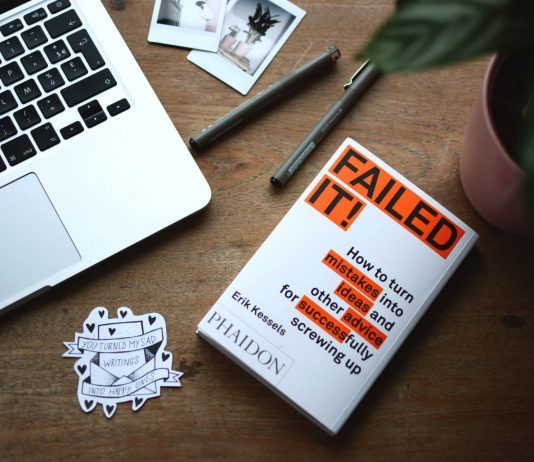
Failure is known to be an essential part of the progress and innovation, and risk loving behaviors are strongly associated with disruptive entrepreneurship. While the Netherlands is a home to many incubators, tech hubs, and startups, risk-averse mentality, and a stable life keep the Netherlands away from becoming one of the major startups’ hubs in the world.
Following an Agenda vs Accepting Risks
If we look at The Netherlands, the number of self-employed people has more than doubled in the past 10 years, going from 500.000 to over a million. The trend has increased in comparison to the past. However, compared to the other countries, Holland prefers “to keep it safe” in many of the aspects. Low unemployment rates, “living by agenda”, planning things ahead with no interruptions, and having a healthy work-life balance while earning enough to have a comfortable life are the aspects that make the Netherlands very attractive for living. However, risk aversion among people seems to be quite high.
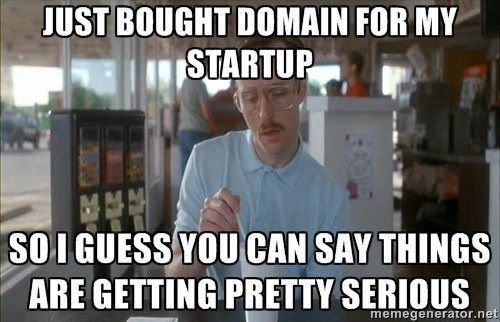
A lot of young people in The Netherlands have some “side hustles” – startups and projects alongside their full-time jobs. However many of them do not want to dedicate time to their passions completely as the prospect of not having enough stability scares them away. The economy in the Netherlands is stable to the point that having a full-time job with all its perks outweighs the uncertainty of entrepreneurial life. Upon graduation, many young people prefer to be employed by a company with a decent entry salary and do not choose entrepreneurship as a path.
Conquering Benelux vs Conquering the Whole World
If we look at existing Dutch startups, their main goal is “to conquer Benelux” while in the US for example, entrepreneurial ambition is “to conquer the whole world”. Same way, Dutch investors try to keep it safe and rarely invest in high-risk high-profit projects. Apart from a couple of Dutch unicorns, most of the startups would be described as “socially innovative, stable and benefiting the local economy“ instead of “disruptive and game-changing”. While there is nothing wrong with developing a locally-beneficial startup and bearing the risks in mind, the overall risk aversion in the society might make more risk-loving Dutch entrepreneurs want to leave The Netherlands and develop their ideas elsewhere.
Perception of Financial Risks
Based on the research and the data from ING International Survey on Savings, people living in the Netherlands, Austria, and Germany consider investments in shares, mutual funds, and bonds on average extremely risky whilst their expected returns are very low. In contrast, those in the US, Turkey, UK, and Australia tend to have the exact opposite belief, that is, investing in financial assets can be highly beneficial, with a risk below the mean of all other countries.
Same way, many Dutch companies tend to consider previous “failures” as a negative factor when employing people. “After Michiel Frackers Internet company Bitmagic failed in the Netherlands, US-based companies offered him a number of attractive positions (like the position of Managing Director Europe at Google), but Dutch companies preferred to stay away. In the States the reaction was… Good! Now you have got a little blood on the nose… Everyone says that you learn more from your failures than from your successes. However, it seems that in the Netherlands that was not the case”.
While Dutch companies tend to have less competitive environment in the workplace than US-based ones, risk-taking behaviors and failures on average are more tolerated and accepted in the US.
Failure is an Option by The Institute of Brilliant Failures
Not everyone needs to be entrepreneur. However accepting failure as a learning process and educating young people about entrepreneurship and business are the things that can foster innovation. One of the great examples of Dutch initiative towards this is the Institute of Brilliant Failures founded back in 2015 by Paul Iske – Chief Dialogues Officer at ABN AMRO Bank. The foundation aims to promote an environment of entrepreneurship by learning to deal with risks and the evaluation of mistakes. The platform encourages people to share their failures, and help them learn from mistakes with a set of tools. The institute has gained extensive experience in creating more ‘fault tolerance’ and a more healthy innovation climate in complex environments.
Proactive Flexibility
At any point of your life, your job application might get turned down, you might miss your bus stop, or end up missing a flight, you can get fired or your business can fail, and your relationships might not work out. The idea of failing is quite hard to embrace, but in many moments in life, it’s experimenting and failing that brings up innovation and serve as the driving force of the progress. In times of increased life complexity and pace, everyone needs to be able to adjust to the occurring shifts in the economic and political structure. And entrepreneurs need to be even more ahead. “Proactive flexible” mentality is what allows people to act ahead of time, predict the next trends, make a fast decision and be able to adapt fast to any changes with the minimum time loses.
The post Dutch: Not Loving Risks Much? appeared first on Seats2meet.
June 25, 2019
5 companies where you can cowork
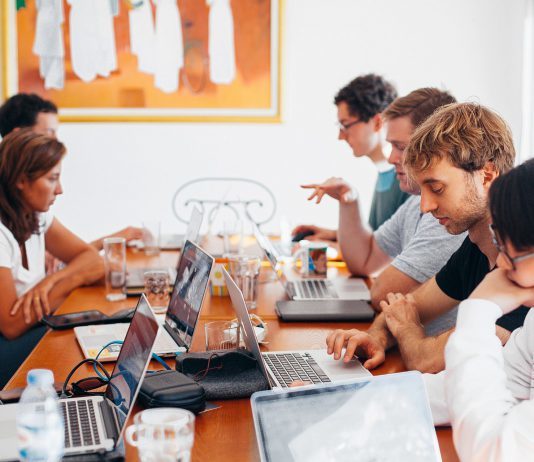
One of the major trends in the future of work is that people become more flexible in their choice of work space. Also, already existing spaces become more multi purposed, with hotel lobbies, cafes, restaurants and offices becoming high quality coworking spaces. Seats2meet is happy to be an active advocate of the change of the future of work. Hence, many of S2M locations are the ones which were repurposed for that from their original goal. Today we want to focus on the companies which decided to add coworking to their already existing operations, which often brought amazing results and serendipity!
Asr – the largest insurance company in the Netherlands also has one of the largest offices in the country. The location was fully renovated a couple years ago. Co-workers from the S2M ecosystem have a specially designated working area. Also, newcomers get a free first cup of coffee and can enjoy their breaks with games of ping pong. Asr remains a popular destination for co-working – a year after it became a S2M location, more than 1000 social capital bookings were made! Working at asr can give you glimpse into the insurance world, and possibly find out if that’s something for you – asr has many programs targeting students and recent graduates.
Address: Utrecht, Archimedeslaan 10
LAB55 – Centraal Beheer – this location creates coworking spaces in collaboration with Achmea. Achmea is a financial services company, which also provides insurance services. Co-working here, you can enjoy the vast greenery, large open spaces and free tea and coffee. An excellent opportunity to immerse yourself in the world of finance for a day without being a finance specialist yourself.
Address: Apeldoorn, Laan van Malkenschoten 20
Dockwize – the new innovation hub in Zeeland. They offer programs to support current and aspiring entrepreneurs and help them grow and develop in every aspect during their entrepreneurial journey. If you’re fascinated by entrepreneurship, this might be just right coworking spot for you! Come in to get to know the brightest entrepreneurial minds of Zeeland and work together with them!
Address: Vlissingen, Edisonweg 41B
there is a newly established tech hub and a startup ecosystem in the Northern Netherlands. It’s located in the Netherlands hidden gem, Leeuwarden, which was also Europe’s cultural capital in 2018. There supports and facilitate coworkers, entrepreneurs, innovators, businessowners and startups and help them to create new successful businesses. If you’re a tech enthusiast, than it’s definitely an excellent idea to spend a day in there!
Address: Leeuwarden, Heliconweg 60
Gemeente Haarlem It’s not only startup and tech companies who are discovering the benefits of adding coworking to their infrastructure, the government can sometimes be a place for innovation too! The goal of the Haarlem City Hall is to actively facilitate local residents and entrepreneurs to engage with local civil servants to solve the city’s issues together. While coworking in Gemeente Haarlem, you can meet local entrepreneurs and city officials in an informal setting during lunch and maybe even find ways for future collaboration. As a coworker, you can share your opinion with the civil servants on how to make Haarlem a more attractive destination for freelancers.
Address: Haarlem, Gedempte Oude Gracht 2
Know another companies where you can cowork? We will be happy to hear about them!
The post 5 companies where you can cowork appeared first on Seats2meet.
June 24, 2019
Laagdrempelig ondernemen bij SpareSpace
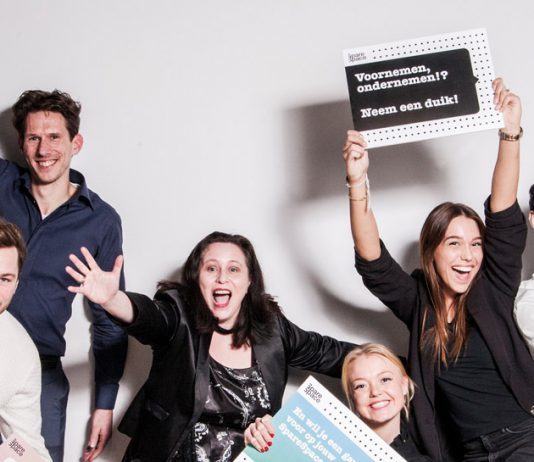
SpareSpace is een bedrijfsverzamelgebouw dat laagdrempelig ondernemen voor starters stimuleert. Dat doen ze door verschillende opties in pakketvorm aan te bieden. Huur een werkplek, vergaderruimte, kantoor, of desnoods het hele pand, inclusief kennis en diensten. En dat alles onder één dak.
Nian Wetsteijn (23) is mede-eigenaar van SpareSpace Rotterdam. Tijdens een opdracht voor haar opleiding aan de hogeschool leerde ze bedenker en oprichter Dennis Mous (38) kennen. Over het concept vertelt ze: ‘Elke startende ondernemer krijgt te maken met uitdagingen, zoals de inzet van social media, het bouwen van een website of juridisch hout moeten slaan. Dat kan, vooral in het begin, lastig zijn. Ons doel is om jouw als ondernemer daar bij te helpen.’
SpareSpace wordt door de gemeente Rotterdam ookwel “het CIC voor de gewone rotterdammer” genoemd. SpareSpace helpt de startende ondernemer met het verder brengen van zijn of haar bedrijf, door alle diensten te faciliteren die een startende ondernemer nodig heeft, in combinatie met workshops, coaching, interactief platform, netwerkborrels en een opstart locatie. DE testlocatie voor nieuw ondernemerschap. Het doel is om 100 startende ondernemers verder te helpen in het ondernemerschap, mede door risico en kosten weg te nemen en kennis en ervaringen toe te voegen.
Na het openen van een eerste SpareSpace clubhuis in Rotterdam, is SpareSpace toe aan een volgende stap, Utrecht. Tijdens de pilot in Utrecht, startende vanaf 15 juli, zal SpareSpace in samenwerking met Seats2Meet zijn eerste wortels hier vestigen. Drie maanden lang orgniseert SpareSpace elke twee weken een interactieve workshop/sessie om de ondernemer verder te helpen met zijn of haar ondernemers vragen. Connectie, ontwikkeling en kennis staan tijdens de pilot centraal. Vragen zoals: Hoe optimaliseer ik mijn naamsbekenedheid via social media? Hoe zorg ik ervoor dat mijn branding volledig op elkaar aansluit? Of wat zijn de gevolgen als ik geen waterdichte algemene voorwaarde heb? Elke twee weken wordt er een ander onderwerp aangesneden en zal de ondernemer ook aan het denken gezet worden om vervolgens stappen te zetten met zijn of haar onderneming!
SpareSpace heeft er veel zin in en hoopt veel nieuwe, inspirerende ondernemers te ontmoeten deze zomer!
The post Laagdrempelig ondernemen bij SpareSpace appeared first on Seats2meet.
June 16, 2019
How Artificial Intelligence Can Impact Your Consumer Habits

The future is here. Artificial Intelligence has been the talking point for over a decade now, and we can finally say that its implementation for an intelligent future has begun. AI is going to dictate the future we have, and it will have a key impact on numerous industries. Not only industries, but consumer habits and behavior would also be impacted by AI as the mass interaction between brands and customers across the buyers’ journey will bring about a lot of innovation.
While the common perception is that AI will impact manufacturing companies more than any other industry, the latest research in this regard has shown that AI is also having a significant impact on the end consumer. Retail has always been a hotbed for analytics and machine learning, and with AI in place currently, consumers are within the target range for most marketers.
In other ways, AI is impacting the way buyers currently behave.
Obviously, since consumers are directly linked to AI and what it brings, they will want to know the impact it will have upon them. Here we look at the impact of AI on consumer habits and how it can dictate the way consumers buy products and services from the market for the days to come.
Customers Will Splash More Cash
With all the analytics in place, the bottom line with AI is that customers will splash more cash than before. The age of consumerism will soon reach to unprecedented heights with AI in full flow.
Abhinav Aggarwal, the CEO of an AI startup, believes that customers will end up spending more on goods and services now that AI is in the mix. He believes, “Fully cognitive websites will drastically change buying behavior and selection. We see the average spending of a buyer per session significantly increasing with these websites. Cognitive sites take consumers through a much smarter funnel, allowing them to buy before user fatigue starts to kick in or the user gets distracted.”
The idea behind this change in consumer behavior is that AI will use different analytics to find more about consumers and their needs. With this information generated through the systems, brands will develop better selling techniques to target the consumers. These selling techniques will catch the customers right when they are in need of something and are about to buy it.
Just imagine all the emails and texts you receive when you are busy or don’t have time to read them. This is a wasted resource for sellers. With AI-backed data analysis, you would know just when to send your target audience a text promotion. They will catch you lying on the bed in your home more often than before.
Customers Will Become Loyal
Customer loyalty is something that businesses have been chasing for quite some time now. The best businesses out there are those that have a loyal customer base with them. Research centered on this topic has suggested that attracting new customers to your brand can be an expensive and time-consuming process. The alternative to this process is to have customers that stick with your brand through thick or thin. Attracting a new customer and building a new connection is believed to be around 25 times more expensive than retaining a current one.
It is believed that AI can uncover some intelligent customer insights that can encourage loyalty within consumers. Digital consumers have numerous choices around them; so much so that they are currently exhausted with the huge stream of choices around them. AI can not only cut down on these options, but give customers the very best.
Air BNB’s search option is powered by AI, and helps cut down on the time taken for customers to find a suitable spot for staying. The AI powered search cuts through massive amount of data to give all users specific listings personalized to their needs and demands. The user’s past history is studied in detail, and they are showed a personalized package according to their interests and the kind of Airbnb experiences they have had in the past.
Customers Will Become Accustomed to Greater Convenience
Online shopping and retail options have already given customers a lot of convenience, but that convenience will soon multiple by 10 with AI’s implementation. One of the biggest innovations here would be of face and fingerprint recognition for multiple online and offline purchases. The voice detection technology driven by AI can allow consumers to chat around with digital assistants and try to get the best out of the product they are buying. This virtual connection will spell a world of good for most consumers.
A recent example of AI in play can be the Pinterest Lens. This feature by Pinterest allows users to find their everyday home items online. What you need to do is take a picture of the item and upload it on the app.
Customers Will Shift to Voice Technology
A lot of the leading retail and financial organizations are shifting over to voice technology, because customers feel more comfortable using it.
Voice searches are easier to manage for customers, and they also help generate better results than textual queries. Moreover, the use of digital assistants in our daily lives has meant that customers are now more open towards using voice technology in their daily life. The initial barriers have gone, and customers prefer voice over text now.
Customers will put more trust on brands
User privacy is an important detail, and organizations realize that the trust of their customers is extremely important for analytics to start. So, they will look out for this trust from customers. Customers will also realize their overall benefit here, and would start trusting businesses with their private consumption information. Once customers start experiencing the thrills and benefits of AI, they will realize that they have got all to benefit from this wave of AI. And once they do realize that, they will start trusting organizations more with data, so that they can achieve their cumulative good.
The post How Artificial Intelligence Can Impact Your Consumer Habits appeared first on Seats2meet.
June 15, 2019
Stress? Zo kom je er vanaf!

Stress. Ooit ontworpen door ons lichaam om onze alertheid te verhogen en energie te geven die we nodig hebben om ons best te doen. Maar stress is niet altijd goed. Wanneer je teveel en te lang stress ervaart, kan het je lichaam fysiek zelfs beschadigen. In deze samenleving lijkt stress in overvloed aanwezig te zijn. Tijd om dat aan te pakken, dus. Maar hoe kom je er vanaf? Eén manier om stress aan te pakken, is anders te kijken daar waar het allemaal begint: je brein.
Realistisch denken: makkelijker gezegd dan gedaan
Het klinkt makkelijker gezegd dan gedaan. En dat is het ook. Tot op de dag van vandaag, heb je waarschijnlijk altijd dezelfde denkpatronen gehad. In een bepaalde situatie, reageer jij op een bepaalde manier. Dat verander je niet in één of twee dagen. Maar het is wel vaak de oorzaak van veel stressreacties. Het is dan ook belangrijk om te erkennen dat stress vooral vanuit jezelf komt. Ondanks dat een deel van de stress wordt veroorzaakt van buitenaf, zijn wij vooral zelf verantwoordelijk voor stress.
 Zet de afstandsbediening op pauze
Zet de afstandsbediening op pauze
Vaak is er tijdens een stress-situatie één bepaald moment waarop het écht even teveel werd. Eén gebeurtenis die ervoor zorgde dat je net even anders handelde dan je zou willen, dat je je ondergewaardeerd voelt of onnodig zorgen maakt. Wat voor mij werkt, is om de afstandsbediening even op pauze te zetten. Wat was nou precies dat moment dat het fout ging? Kijk dan vooral om je heen: was er een bepaalde handeling of een zin die iemand zei, waardoor je stress kreeg? Door dat goed te ontleden kan je makkelijker de gedachtes die je toen had analyseren, en daarmee ombuigen naar realistische gedachten.
Plak een label op jezelf
Hokjesdenken wordt vaak als negatief gezien. Toch kan het soms handig zijn om een label op jezelf te plakken. Op die manier herken je namelijk sneller je eigen gedachtes en daarmee je valkuilen. Door te herkennen welke negatieve gedachte vaak in je opkomt, kan je deze makkelijker omzetten in een meer realistische gedachte. Daarmee neem je verantwoordelijkheid, maak je het bespreekbaar en kan je het aanpakken. In de RET (Rationele Effectiviteits Training) zijn er vijf irrationele denkpatronen die veel voorkomen.
Overdreven perfectionisme: “ik mag geen fouten maken”
Rampdenken: van een mug een olifant maken.
Lage frustratietolerantie (LFT): “Zie je wel, het gaat niet”.
Lovejunk: “Als ze mij niet aardig vinden, stel ik niets voor.”
Moraalridder: “Anderen moeten zich gedragen naar mijn opvatting.”
Deze irrationele gedachten kunnen gedrag en emoties veroorzaken die je onder spanning zet of van streek maakt. Uiteindelijk zorgt dat vaak voor onproductief gedrag. Maar wat doe je er dan tegen? Tijdens de RET leer je hoe je daar mee om kan gaan en het positief te benaderen.
Wees lief voor je brein
Je hersenen hebben ruimte nodig om op te laden en tot rust te komen. Je brein wordt op verschillende manieren geprikkeld waardoor je meer focus houdt, maar ook beter in je vel zit. Er zijn verschillende manieren om je hersenen op een positieve manier te beïnvloeden.
Beloon jezelf als je hard hebt gewerkt. Koop een cadeautje, laat ‘m het liefst ook nog even inpakken. Je hebt het verdient, toch?
Blijf in beweging: maak een wandeling, het liefst buiten. Niets is beter voor je hoofd dan een rondje lopen.
Neem een andere route naar je werk.
Haal een keer alle klokken en andere vormen die tijd weergeven, uit je beeld.
Wees een dag (of meerdere) onbereikbaar voor de digitale wereld.
Als onderdeel van mijn work&learn traject bij Seats2Meet mocht ik deelnemen aan de cursus “Rationeler denken en Effectiever functioneren” van Schouten en Nelissen. In drie volle dagen ga je aan de slag met persoonlijke situaties, struikelblokken en stress. Samen met andere deelnemers ga je jouw situaties te ontleden. Door succes te delen en elkaar te helpen, groei je niet alleen als persoon maar ook als groep. Elke dag ga je weg met een kleine uitdaging voor jezelf, om de patronen echt te doorbreken.
The post Stress? Zo kom je er vanaf! appeared first on Seats2meet.
June 14, 2019
June at Seats2meet: Festivals, Meditation And Inspiring Blogs For You!


As the summer is coming alone, it brings up exciting opportunities.
In this newsletter the coolest blogs, locations, and events for you!
Scroll down to discover the best Powered by S2M locations to enjoy on a sunny day.
Looking for a location fitting your focus of today? Check out your S2M Passport:

EVENTS

June 21st, Utrecht:
Anne Festival
A day full of energetic stories about sustainable living. Design your own tiny house, cycle around with an e-bike and experience the world through the eyes of an animal in livestock farming through Virtual Reality at the Powered by S2M location Anne

JOIN



 Trends & Entrepreneurship events
Trends & Entrepreneurship events
-De (on)gewone commons
About entrepreneurs trends, networks, and the future of work & learning.-Financial advise for S2M Network
Get financial advice.

 Lifestyle events
Lifestyle events
-Drop-in meditation
Chill out and relax during this guided meditation.-Urban Monkeys
Let’s get fitter together!


TOP 3 TAGS OF THE MONTH

This month improvisation, jazz, festivals are the tags of the month,
even the tags are taking a festive turn!
*These tags are the skills, knowledge, and interests of S2M Users worldwide.

 Nice to meet: Amin Rafiee, Blockchain Advocate
Nice to meet: Amin Rafiee, Blockchain Advocate
Learn more about blockchain, networks, and decentralization.
 Nice to meet: Benita Matofska, the founder of People who share
Nice to meet: Benita Matofska, the founder of People who share
Learn more about sharing and social impact.

MUST VISIT
 Summer locations for you
Summer locations for you
June 11, 2019
Nice2Meet: Benita Matofska, the Founder of The People Who Share Charity and the Author of Generation Share
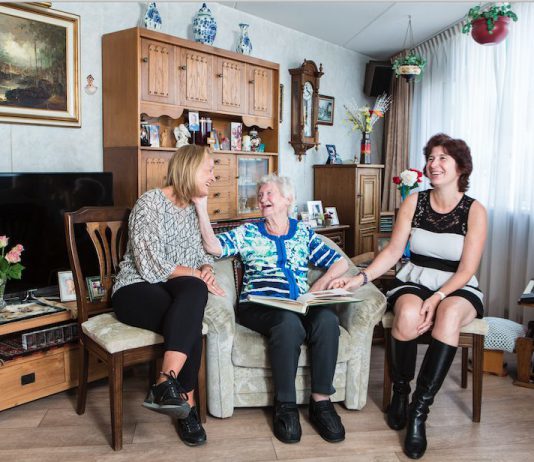 Can you please tell a bit who you are and what is your background.
Can you please tell a bit who you are and what is your background.Hello! I am Benita Matofska, I am a global speaker and change maker. I am currently based in Brighton, United Kingdom. On June 17th, I am publishing my book, Generation Share. My job involves finding positive solutions to our global problems, such as climate change, poverty, hunger, inequality and isolation. 10 years ago, I was working in the charity sector following 20 years in broadcasting. I recognized that the world was becoming an increasingly unequal place and I wanted to do something to address that. The world I want to create is a society built around the sharing of human and physical resources. Following a life-changing experience where I shared a platform with Desmond Tutu at the One Young World Congress in 2010, I was inspired to create The People Who Share. TPWS is a charity that helps to unleash everyone’s sharing potential. I’m known as the ‘Chief Sharer’, I’m a global leader in the sharing economy.
How did you come up with the idea of The People Who Share? What’s the goal of the community?
I’ve always been really interested in the social impact of sharing. The sharing economy is a term that is widely misunderstood. When we think about the sharing economy, we should think about everybody. We want it to be about people like us, but oftentimes people are looking at very specific businesses, which are often backed by either multinational corporations or by venture capital. However, the sharing economy is in fact a much more far reaching term. Essentially, what it refers to is a system to live by where you care for people and planet share available resources in any way that you can.
I’ve done a lot of work to define the sharing economy. Over the last three years I’ve been working on a project called Generation Share. It is a book that documents the incredibly inspiring stories of change-makers worldwide who are creating social impact via the sharing economy by sharing resources in lots of different ways and creating all kinds of social value. It will bring over 200 stories – the world’s largest collection of changemaker stories. It is going to be published on the 17th of June for Global Sharing Week, the largest annual celebration of Sharing and the Sharing Economy.
The People Who Share began as a small non-profit. And still, we have remained to be entirely run by volunteers. As a charity, we’re very much about unleashing everyone’s potential to share. And we believe passionately that the sharing economy is for everyone. Through the sharing of resources and the accessing of shared resources we can build a better society and a better world and certainly better economy. We look at three kinds of values: social, environmental and economic – often environmental and social value is hidden and we very much want to unleash that. Though our planetary resources may be finite, we all have unlimited potential to share and collaborate and if we can unleash that unlimited sharing potential, then there’s no end to what we can achieve. Essentially, The People Who Share is a charity for people or businesses who care about the world and want to make the best future.
As a charity, we find ways to engage everyone’s sharing potential. We do 4 things. We promote, educate, organise and share. We promote the sharing economy through our campaigns such as our flagship campaign, Global Sharing Week. Global Sharing Week is the largest annual celebration of sharing. It takes place this year from the 16th of June to the 22nd of June. We work with over 300 partner organizations worldwide and have a global reach of over 100 million people. Last year we had 456 events in 247 cities in 39 countries on all continents. And we know this year is going to be the biggest still. So that’s what we do in terms of promoting this whole idea of sharing resources. We also educate, so we publish reports on how the sharing economy is creating social impact and changing lives. Thanks to these reports, it is evident for the first time how the sharing economy is having a positive social impact and affects people’s everyday lives. We also organise, by putting on events, such as meetups, community events and workshops, we run the Global Sharing Economy Network Meetup and finally we share. We run Share Tables at our events, collecting needed resources such as food or clothing for a variety of charities and people in need and we host the Share Guide, a free online resource providing people with access to over 10,000 platforms, aps and projects where they can share resources.
What is the best part of your job?
Through my job I get to connect and meet with people from all over the world and influence people who work in many different sectors. As an international public speaker and changemaker, my role is very much about helping people and helping businesses to change lives. I have the opportunity to change millions of lives by working with different organizations. The businesses I work with are what I call ‘changemaker companies’, which embed social and environmental value in what they do. It is certainly no longer the case that businesses can only create economic value. They now need to be creating social, environmental and economic value.
Through my book Generation Share I have interviewed over 200 change-makers from around the world. We have extraordinary stories from the two women who’ve set up a life-saving human milk bank that is saving the lives of premature babies to a slum-based school for girls in India called Sakhi School for Girls Education that was set up by change-maker Aarti Naik. It was set up in the slums originally in her family’s slum home, sharing skills and food with those in need. As a part of this program, the girls receive education in English, maths, science and financial skills and also receive a hot meal, which is often the only hot meal of the day for many of them.
The book brings these incredible inspiring stories of hope, to public attention as it’s clear that the world needs some hope right now. Generation Share is very much about focusing on positivity and sharing these incredible stories of transformation. We need to demonstrate that the Sharing Economy is saving millions of lives around the world. It is a global movement and through the book we want to inspire more people to get involved.
The book itself is produced from waste materials. Each copy will fund and educate a girl in the slums, supporting Aarti Naik’s Sakhi School for Girls. In addition, each copy supports the planting of a tree through the Eden poverty and deforestation project. So it’s creating and sharing good in every possible respect.
You’ve mentioned that you’re a changemaker. What does being a changemaker mean for you?
A change-maker is somebody who is at the forefront of creating a better world, changing lives, helping people to see the magic in the world, to recognize that we live in a world now where we need to share and collaborate. If we can unleash that sharing potential there’s no end to what we can achieve. That’s really what being a changemaker is about – it’s about unleashing that capacity to share. The reality is that we have enough food to feed everyone in the world. We have enough food to be able to end world hunger. The problem has been that we have a shortage of sharing. So what we need to be doing is to unleash the unlimited capacity to share and if we can do that, we can build a world that benefits everyone.
Could you give a piece of advice to people in S2M ecosystem who want to start sharing but don’t know how?
As I mentioned, everybody has the capacity to share and collaborate. As a starting point I would say to people, when you wake up in the morning, ask yourself this question: What do I have that I could share today? That could be as simple as smiling at a neighbor or making them a cup of tea. These simple things don’t necessarily have to involve technology.
However, if people are interested in how they can share online, we have a Share Guide that can be easily accessed. Also, social media can be used. We’re very active on social media. People can follow the hashtag “#sharingeconomy” and #generationshare and find out all sorts of ways in which they can access these resources. Perhaps you could share some of your time, perhaps you could go volunteer with a local charity. Volunteering / sharing time is something that everybody can do. We all have the ability to share.
To share is to be human. We wouldn’t have survived as a society without our ability to share and collaborate. We know that in times of famine and in times of war for example people survived by coming together and helping each other. Therefore, sharing is also part of our survival.
It’s something that everybody can do no matter where you are in the world. I mentioned Aarti in the slums of Mumbai with no future ahead of her. The girls there are married very young and many are sold into prostitution or sex trafficked. She looked around her and she realized if she wanted to change her future, her will alone wasn’t enough, she also wanted to share that dream.
She had nothing she lived (and still lives and works) in the slums, living in one room slum home with nine family members. She realized that in order to have a future, she would first need to get an education. She knew that she had to teach herself to speak Hindi and English because in her community people speak a local dialect called Marathi.
She did this by finding and reading resources. Then she wanted to share that with others. She saw that this was the ladder, the way out of this life of poverty and prostitution and no future for girls. So she sets up this school originally from her one room slum house. Her mother was incredible — supporting her through the whole journey, she allowed her to invite 5 girls so she could start teaching them what she had learned herself. Now Aarti has a small building (a school) in the slums that she rents.
My point is, if Aarti could do that with no resources, in the most adverse conditions, then all of us can share. `All of us can share with somebody, all of us can help a neighbor, all of us can take what we no longer need and share it with others / a charity shop or a school.
There are so many different ways in which we can share.
Social Media campaign from The People Who Share
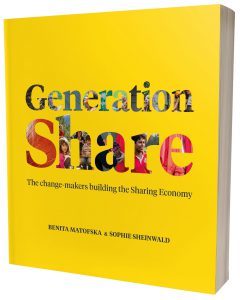
We have a social media campaign that we’re launching and we would love the Seats2meet community to get involved in that. The idea is, if you have a group of people who post the same message at the same time. Then you are able to get to trend and you will able to reach 100 times more people than you would ordinarily. So it’s all about the power of the crowd to do this. Therefore, we are we all going to do one of these, called a pack.
Essentially, people sign up through this link to be part of this campaign. Then the campaign goes live on the day of publication of the Generation Share book, which is the 17th of June. Our goal is to be able to share that hope with more people and to help change and save more lives through the sharing of this book and the hope that it brings of building a world where we share resources in any way that we can.
Special credit to the book photographer and co-creator, Sophie Sheinwald.
The post Nice2Meet: Benita Matofska, the Founder of The People Who Share Charity and the Author of Generation Share appeared first on Seats2meet.



